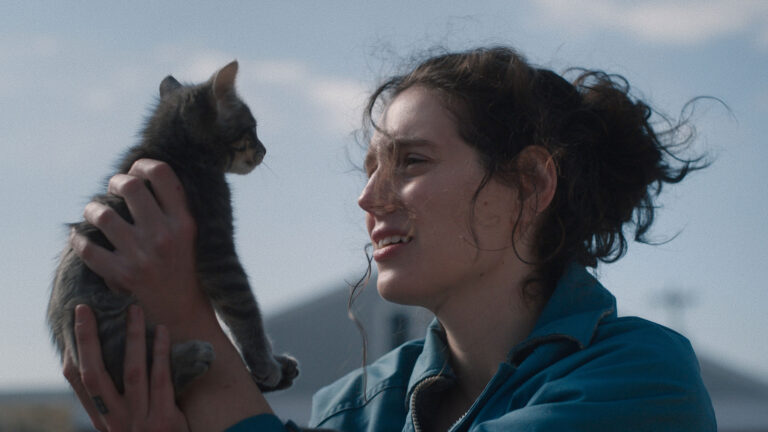
©Courtesy of Sundance Film Festival
The most difficult challenge that the first-time screenwriter/director/protagonist Eva Victor had to face with Sorry, Baby was certainly to find the difficult, delicate balance between the tones that she wanted to develop through the story. Her feature film starts with the reunion of two college best friends, Agnes (Victor) and Lydie (Naomi Ackie), a few years after they graduated. The first one has finally become a full-time teacher at the same university, while the other one has moved to New York. Little by little it becomes clear that their friendship has been severely tested by a trauma that Agnes suffered when she was still a student, something that forced her to shut down in her own personal way. But life went on for her as much as for everyone else, and the little big struggles of everyday life are bringing to all the characters new obstacles but also tiny bites of happiness…
Since the very first sequence Eva Victor is capable of setting a personal, specific kind of mood that she then keeps stable for the rest of the movie, no matter how dramatic or funny the scenes are going to be. The secret for the recipe is simplicity: the director is totally aware of what she can deliver to her character as an actor, and consequently uses her charming being goofy in the most appropriate way.
Agnes is naturally funny, slightly snobbish, that kind of person that maybe you don’t notice in the beginning, but once you do it’s impossible not to want to become her best friend. Next to her, Victor casted a group of colleagues that embody their own characters perfectly, starting with a vibrant Naomi Ackie. Everyone in Sorry, Baby completely understood the tone and the pace that the auto wanted to deliver, and they acted accordingly. Even the roles that could have been stigmatized, like Decker or Natasha, in the end are kept surprisingly real.
The best example of Victor’s lucidity about this is the only scene in which John Carrol Lynch shows-up, a heartbreaking moment in which two strangers, not even really connected, talk about life and other disasters sitting in a parking lot with a spicy sandwich as lunch. An emotional and private moment that elevates the entire movie, another step in Agnes’ narrative arc not built in the classic way but through a series of stages that feel real because they don’t necessarily lead to a rhetoric end, far from it.
The process of healing from trauma, if there is really one, isn’t linear. It is an accumulation of random people that surround her with affection, intimacy, small talkings, and some ordinary wisdom that makes you carry on through another day. Sorry, Baby doesn’t show how to deal with the pain or the rage, with the fear or the frustration. It just tells you that in some way it happens, in the end you start having a series of decent, maybe even good days whose sum make your life worth living.
Eva Victor with her debut behind the camera has achieved an impressive result. Sorry, Baby works on two different levels: first one is entertaining to watch, full of witty characters and odd situations that capture the viewers’ attention without necessarily forcing them to smile or even laugh about something that is not fun at all. On a deeper and most important level the movie shows a modesty, an intimacy that makes you participate with a respectful empathy to the protagonist’s journey, whichever it may be. In the end, you truly feel for Agnes and her inner, twisted life. And at the same time you understand that, as damaged as she is, there is enough strength, wisdom, humanity inside and around her to keep carrying on.
Rate: B
If you liked the review, share your thoughts below.
Check out more of Adriano’s articles.

